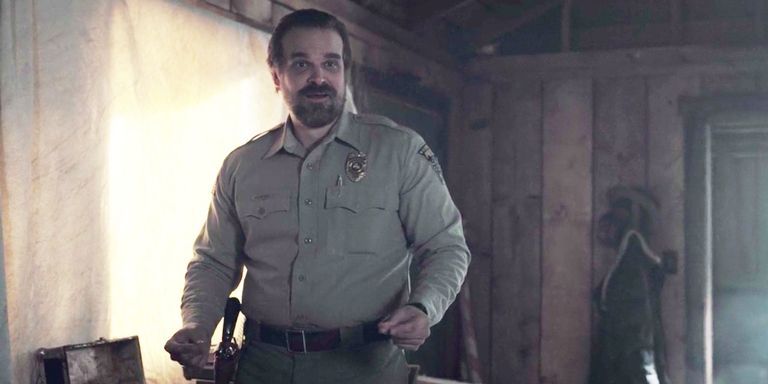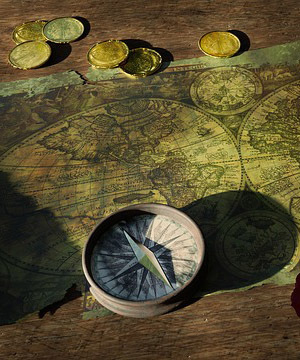This Week:
Black Bird vol. 10
Boys Over Flowers vol. 8
Dawn of the Arcana vol. 5
Demon Love Spell vol. 4
The Demon Prince of Momochi House vol. 2
Dengeki Daisy vol. 1
On Holding Up
I was visiting my family a few days ago, and my mom hauled out a crate of my old manga to pick through. There was some stuff in there that I had no real desire to revisit – why did I have a book that was just frames from the Chobits anime with the dialogue in word balloons? – but I did manage to scrounge up a couple volumes of Mars – 3 and 6, to be exact. The series is long out of print and I haven’t read it in years, but I remembered the series fondly and was curious about whether it would hold up.
Now, I think the concept of “holding up” is a pretty nebulous one. When you say something “holds up”, does that mean it still resonates with you personally? Does it mean the dated elements don’t cancel out the nostalgia goggles? Does it mean you’d recommend it to new fans? Does it mean the values it expresses don’t totally fall apart by modern standards? It’s pretty ambiguous, and I’ve seen the term applied in all these ways. So when I asked if Mars holds up, I wasn’t quite sure what I would find between the pages.
It was only two volumes out of 15, so I really can’t speak definitively about the whole series. Still I found myself enjoying what I did read just as much, if not more than I did when I was fifteen. The little glimpses I got showed a series that handled the “troubled bad boy” trope extremely well. Rei has a lot of darkness inside of him, and he’s capable of deep cruelty, but he never turns it against Kira. The two struggle to communicate at times and fights break out, but overall their relationship is one of love, trust, and healing. It stands out in my memory as a rare shoujo romance that explicitly touches on consent. However, the story forgives Rei too readily for using homophobic slurs and there’s an “evil bisexual”, which would not fly these days and is plenty enough reason for people to put the book down and never pick it back up. If I were reading it for the first time, I very well might have.
The answer to, “Does it hold up?” can be so complicated. Without the homo/biphobia, I would be leaning toward an unequivocal “yes”. Nowadays, the word Rei called Masao probably wouldn’t even be printed, substituted with something less likely to trigger immediate outrage. Despite all the things the story does well, that one panel could ruin the entire experience of reading the series for some readers. And it’s not like those readers weren’t always there – publishers just treat them as more worthy of consideration these days. Nor is it enough to dismiss it as a product of its time; hurtful is hurtful, no matter what.
So does it hold up? Well, it depends.
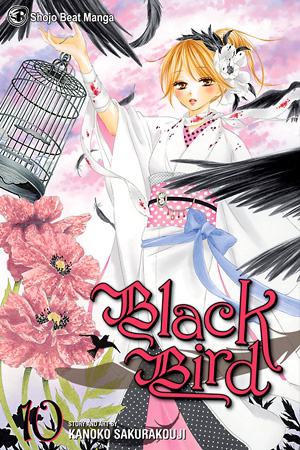
Black Bird vol. 10
The past returns to haunt Kyo and Misao when Kyo’s long-lost father suddenly reappears. But the reunion is less than happy, for Lord Yo is suspected of murdering his wife!
Misao learns the real story of the deadly incident, but it is hardly comforting. Should she tell Kyo about his mother’s fate, or should she protect him from a truth he might not want to know? (summary by Viz)
11 points
Is there a phrase in the English language that induces the screaming heebie-jeebies more than, “I was waiting for the child to become a woman?” Because since I first read volume 10 of Black Bird, I’ve been trying to think of something but so far I’ve come up empty.
This volume forces largely on Kyo’s parents as Misao looks into the reason his mother committed suicide when he was young: a succession dispute where she supported Sho, while his father Yoh supported Kyo. Their story is rife with abuse, starting with how the much-older Yoh practically raised Yuri and groomed him to marry him from the time she was very small. He touched her sexually in front of their children, which turns out to be the source of Kyo’s disregard for consent. When he finds out that Yuri reported his plans to get Kyo to become clan leader instead of Sho, he strangles her – the final factor leading to her drinking poison.
The whole time, he is framed as a tragic, romantic figure who fears the monster inside him that forced him to lash out violently and lose the love of his life. In reality, he is a longtime abuser who groomed a child, felt entitled to her body, and tried to murder her when she acted on her own will and judgement. He treated Yuri like a possession, and she paid the price with her life. I’m so tired of stories where women die at the hands of violent men, and the man is treated like his biggest crime was just being too passionate.
Meanwhile, the revelation that Sho is still alive leads Kyo to become violently jealous of Misao. He constantly interrogates her, asking if she’s thinking of his brother. Unfounded accusations of cheating are abuse in and of themselves, but Kyo escalates despite Misao’s fervent denials, going from mean-spirited to outright and cruel and violent. It culminates in him pinning her down and forcibly undressing her, stopping just short of outright rape. It’s an uncomfortable reminder that even when relationships seem to be improving, it’s usually only a matter of time until an abuser returns to his old ways.
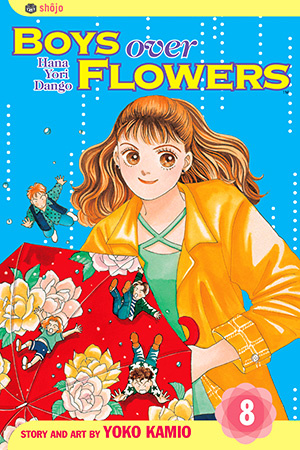
Boys Over Flowers vol. 8
Tsukasa wants Tsukushi and Rui expelled from Eitoku Academy, and he challenges them to a basketball showdown. Later, thanks to Tsukasa’s sister Tsubaki, Tsukushi and Rui are forced to spend a night together. But Rui confesses to Tsukushi that he is still unable to forget about Shizuka. (summary by Viz)
9 points
Volume 8 of Boys Over Flowers features one of the more surreal plot twists of the series: in order to keep from being expelled, Rui, Tsukushi, and Kazuya must defeat the remaining members of the F3 in a game of 3v3 basketball. Otherwise, Eitoku will expel Rui and Tsukushi under threat of being cut off from the Domyoji family donations. It honestly makes no sense, and it’s a headscratching leap of the logic and realism that Boys Over Flowers is supposedly known for. It’s incredible to me that there are no adults around that can put a stop to Domyoji’s tantrum. He threatens to cut the school off from his parents’ money – so, do his parents agree to unquestioningly to whatever he asks? Does he, a volatile and ill-tempered teenager, control the family’s finances? Can’t Tsubaki, a highly influential alumna herself, step in and say, “Ignore my little brother, he’s just throwing a fit”? This goes beyond the normal level of lack of supervision in “poor little rich kid” stories. It’s all a reminder of the level of power Domyoji wields over Tsukushi, and the way he can ruin her life so easily if she displeases him.
Domyoji’s destabilizing unpredictability is best illustrated in a scene where he confronts Tsukushi. He waits for her on her way home, then pulls her into a tight embrace and begs her to say she loves him so he can call off the match. When she doesn’t, he squeezes her painfully, then slams her into a wall and kisses her forcefully. Then he switches gears again to cheerful, “playfully” insulting her and waving happily as he walks off. As Tsukushi watches him leave, she smiles tearfully. Sudden mood swings, moving suddenly from affectionate to aggressive to back, is a hallmark of emotional abuse. While the plot may be contrived, Domyoji’s behavior is terrifyingly realistic when it comes to abuse.
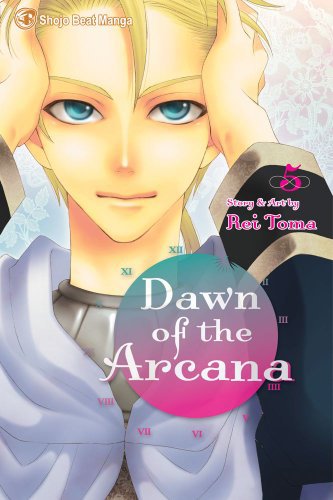
Dawn of the Arcana vol. 5
Princess Nakaba of Senan and Prince Caesar of Belquat only married each other for the sake of peace between their two warring countries, and no one expected there to be love between the unlikely couple. But as Nakaba and Caesar grow close, political forces threaten to tear them apart— especially when Caesar’s brother Cain leads an attack on a village Nakaba is trying to save! As things heat up, will Caesar be able to protect Nakaba against his own brother? (summary by Viz)
1 point
As the plot ramps up and the world expands, this volume of Dawn of the Arcana spends little time on Nakaba and Caesar’s relationship. In fact, the two spend the majority of the volume separated, with little interaction between the two. Instead of romance, the volume uses the characters to explore the axes of oppression in their world, particularly for the ajin and the stigma Cain faced as a light-haired royal. There is, frankly, little to say about this volume in terms of romantic partner abuse, which I suppose is a good thing.
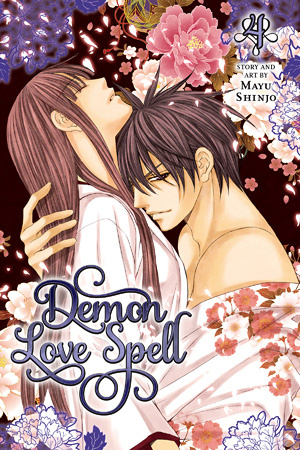
Demon Love Spell vol. 4
Shrine maiden Miko has sealed the powers of the sexy incubus Kagura, who has vowed to protect her. An incubus even more handsome than Kagura comes to take him to task for not using his powers on Miko. Miko finds herself succumbing immediately to the spell of this powerful demon—who turns out to be Kagura’s father?! (summary by Viz)
16 points
We know Miko’s family pretty well, so it was really only a matter of time until we met Kagura’s family. Of course, they’re all super-hot incubi, and his father is even more powerful than he is. Also of course, they’re shaming Kagura for not using his powers on Miko. It’s a “fun” take on the age-old trope that since Kagura doesn’t rape Miko, even though he is totally capable, of it, it’s romantic that he is nominally waiting for her consent, with added cultural pressure from his family. Waiting for consent isn’t romantic or touching; it’s the absolute bare minimum. Plus, I wouldn’t really call the way he constantly pressures Miko, touches her without consent, makes unwanted sexual remarks, has sex with her subconscious mind… and so on. Kagura is deeply sexually abusive, even if he never forcibly physically penetrates Miko. The lip service he pays to being in love with her and only desiring consensual sex is extremely disingenuous.
Meanwhile, Miko is starting to open up to the idea of sex with Kagura. Between Demon Love Spell and Ai Ore, another Mayu Shinjo series I (unfortunately) read before starting work on this column, Shinjo seems to have a pattern. The male love interest pressures the girl and makes her sexually uncomfortable for a long time, until she starts to think about her own sexual desire. From that point, he talks about how much he wants to sleep with her, but will wait until she’s ready. It’s full of cognitive dissonance, and treats the pressuring the girl went through early on as if it’s no big deal.
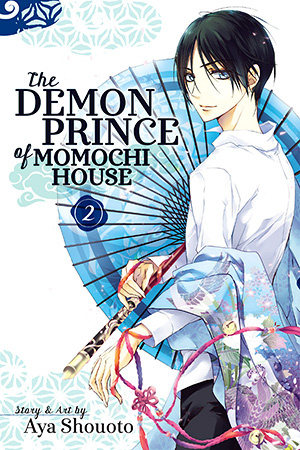
The Demon Prince of Momochi House vol. 2
Himari Momochi inherits Momochi House, an estate that exists on the barrier between the human and spiritual realms. Aoi is the human Omamori-sama, or guardian of the house, who can transform into a powerful spiritual being. But once Momochi House had chosen Aoi as its protector, all evidence of his existence in the human world was erased, and he has never been able to leave. Can Himari break Aoi free? (summary by Viz)
3 points
And here we learn why Aoi’s sense of personal boundaries is so weird: he hasn’t been around another human since he was 10 years old, leaving him emotionally stunted. That’s why he thinks it’s okay to do things like climb into Himari’s bed at night. Does that excuse it? Um, not quite. Ten-year-olds are perfectly capable of understanding things like being told not to climb into someone else’s bed and respecting other people’s boundaries. Plus, it implies that he sees Himari as a parental figure, which is… weird, to say the least.
The three points this week are for pretty much the same reasons, including one earlobe licking. Um, what?
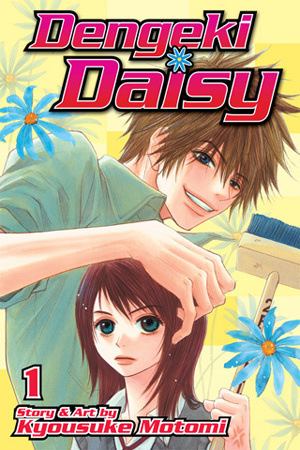
Dengeki Daisy vol. 1
After orphan Teru Kurebayashi loses her beloved older brother, she finds solace in the messages she exchanges with DAISY, an enigmatic figure who can only be reached through the cell phone her brother left her. Meanwhile, mysterious Tasuku Kurosaki always seems to be around whenever Teru needs help. Could DAISY be a lot closer than Teru thinks?
One day at school, Teru accidentally breaks a window and agrees to pay for it by helping Kurosaki with chores around school. Kurosaki is an impossible taskmaster though, and he also seems to be hiding something important from Teru… (summary by Viz)
18 points
Hooo boy. There’s a lot of obvious ways that Kurosaki, who is clearly set up as the love interest, is abusive to Teru. He mocks her constantly, speaks to her harshly, touches her without consent, blackmails her into working for free, and so on. He’s compared favorably to predatory men who do things like catfish girls and get them too drunk to consent and teachers who take advantage of their students. He treats her tenderly in moments of vulnerability, which is supposed to cancel out how mean he is to her most of the time. He defends her and her friends against the villainous men, as a way of excusing his rough edges. But that’s not the part that really gets me.
It’s not really a spoiler to say that Kurosaki is Daisy – after all, it’s revealed pretty much right away. That means that he has been privy to her every hope and dream for years. Although she stayed positive in her communication with him, the fact that he has that deep a level of familiarity with her when she knows nothing about him is unsettling. In addition to all the other factors – he’s an adult, he works at her school, he’s a skilled hacker – it’s impossible for the two to have a remotely equitable relationship.
Next Week:
Black Bird vol. 11
Boys Over Flowers vol. 9
Dawn of the Arcana vol. 6
Demon Love Spell vol. 5
The Demon Prince of Momochi House vol. 3
Dengeki Daisy vol. 2
The Devil and Her Love Song vol. 1



